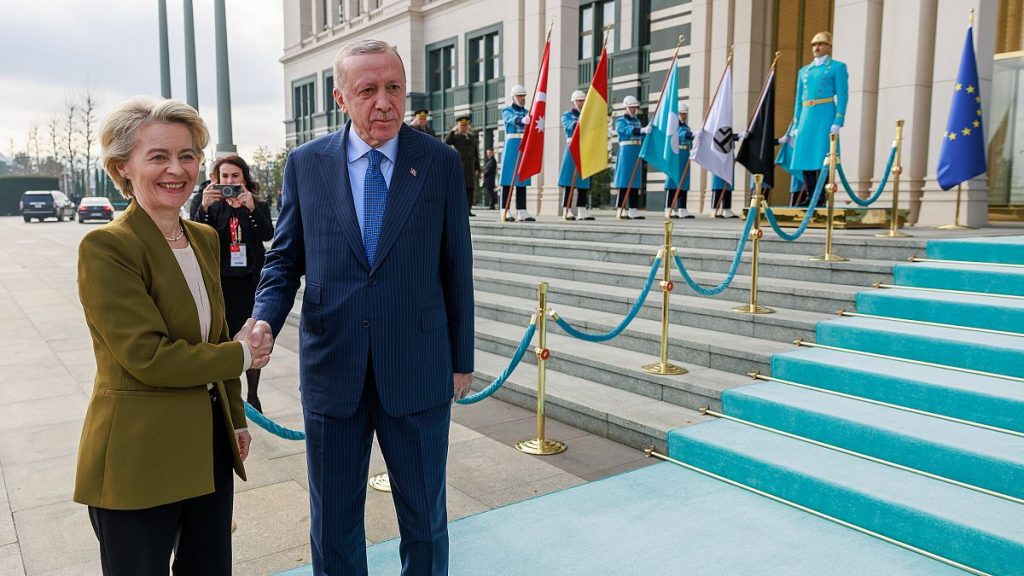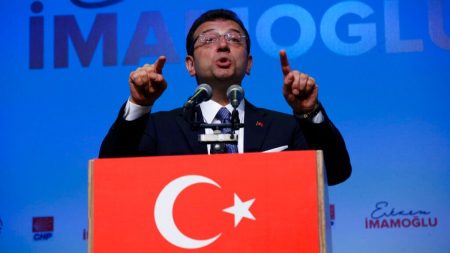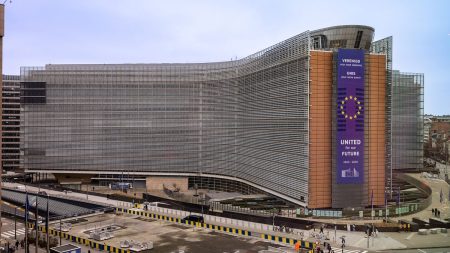Turkey’s Pivotal Role in Syria’s Future: A Complex Web of Interests and Challenges
The abrupt collapse of the Assad regime in Syria has dramatically reshaped the geopolitical landscape, with Turkey emerging as a key power broker in the region. Ankara’s long-standing involvement in the Syrian conflict, including its support for rebel groups and significant military presence, has granted it unparalleled access to the new leadership and solidified its position as a crucial interlocutor in international discussions regarding Syria’s future. From Washington to Brussels, world leaders are increasingly turning to Turkish President Recep Tayyip Erdogan to navigate the complexities of the Syrian situation. This reliance on Turkey stems from its pragmatic approach, its established relationships with diverse regional actors, including Russia, and its undeniable influence within Syria itself. The European Union, in particular, recognizes that effective engagement in Syria requires navigating the intricate web of Turkish interests and leveraging Ankara’s influence to achieve stability and protect human rights.
The EU’s primary objectives in Syria center on establishing a unified government in Damascus, preventing further armed conflict, particularly between Turkish-backed forces and Kurdish militias, and ensuring the safe and dignified return of Syrian refugees currently residing in Turkey. Achieving these goals necessitates close collaboration with Turkey, despite the complexities and uncertainties surrounding Erdogan’s political maneuvering. The EU recognizes Turkey’s significant military presence in northern Syria and its desire to see the return of Syrian refugees, but also acknowledges the potential for renewed conflict and the need to safeguard the rights of all minorities within Syria. Balancing these competing interests represents a significant diplomatic challenge for the EU.
Turkey’s motivation in engaging with the EU on Syria is multifaceted. While Ankara shares the EU’s desire for a stable and unified Syria, it is also driven by its own strategic considerations, including securing its border, containing Kurdish influence, and potentially relieving the burden of hosting millions of Syrian refugees. The financial assistance provided by the EU for refugee support has been substantial, but Turkey seeks further support to facilitate the return of refugees, a process fraught with legal and logistical challenges. The EU must carefully navigate this request, ensuring that any financial assistance contributes to a genuinely sustainable and safe return process, respecting the rights and needs of the refugees themselves.
The relationship between the EU and Turkey has been historically fraught with tension. Erdogan’s unpredictable political style and Turkey’s stalled EU accession process have created an atmosphere of mistrust. Despite these challenges, the EU recognizes the necessity of engaging with Turkey on Syria, given its pivotal role in the country’s future. This engagement requires a delicate balancing act, acknowledging Turkey’s legitimate interests while upholding the EU’s core values of human rights, democracy, and the rule of law. The EU must remain vigilant in ensuring that any cooperation with Turkey serves the broader goals of peace and stability in Syria, and does not inadvertently contribute to further conflict or human rights abuses.
The EU faces a daunting task in navigating the Syrian crisis. The collapse of the Assad regime has created a power vacuum, with various factions vying for control. The presence of extremist groups, such as the remnants of ISIS, further complicates the situation, posing a significant security threat to the region. The EU’s engagement with Turkey must be carefully calibrated to address these complex security concerns, while simultaneously promoting a peaceful and inclusive political transition. This requires a nuanced approach, recognizing the diverse interests at play and leveraging Turkey’s influence to promote stability and prevent further escalation of violence.
One of the most pressing issues facing both the EU and Turkey is the fate of the millions of Syrian refugees currently residing in Turkey. Ankara is eager to facilitate their return, but the conditions within Syria remain precarious. The destruction of infrastructure, the presence of landmines, and the ongoing security risks pose significant obstacles to a safe and sustainable return process. Furthermore, the legal status of returning refugees remains uncertain, with many facing potential persecution under existing Syrian laws. The EU must work closely with Turkey to address these challenges, ensuring that any return process is voluntary, dignified, and respects the rights of the refugees. This requires not only financial assistance, but also a concerted effort to address the underlying legal and security concerns that prevent a safe return.










